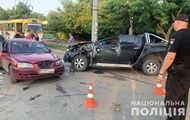Warning the population is a problem in the event of a disaster: There are apparently gaps, especially in the area-wide warning of the population – also in southern Baden.
“What we have seen in North Rhine-Westphalia and Rhineland-Palatinate is an absolute extreme event, every planning comes to its limits”, says the Emmendingen district fire chief Christian Leiberich, who is the department head for the working group of district fire chiefs in Baden-Württemberg civil protection is responsible.
The siren warning network is no longer state-of-the-art
“We have to learn from the events.” While the aid itself worked well – also with support from southern Baden, the nationwide warning to the population was an “open flank”. In recent years, people have relied too much on digital warning devices, such as the mobile phone warning apps Nina and Katwarn.
On the other hand, the siren warning network has been thinned out more and more since the 1990s, and it is also getting on in years and is no longer state-of-the-art. For example, there is a lack of emergency power buffers that ensure that sirens work even in the event of a power failure. “Around twenty percent of the population in the district of Emmendingen can still be reached in this way,” estimates Leiberich. Sirens are still installed in 14 out of 24 district communities.
There are also figures from the other districts, they were communicated on the occasion of the nationwide warning day last year. There are still 66 sirens in the city of Freiburg, and in the Breisgau-Hochschwarzwald district, sirens are still installed in 45 of the 50 municipalities in the Breisgau-Hochschwarzwald district – mostly on fire stations and town halls. The situation is similar in the Lörrach district. All communities there are equipped with sirens.
“We have to sensitize people to the fact that crisis situations do not only occur in distant countries” Christian Leiberich, Emmendingen district fire chief
A register of warning devices is currently being drawn up nationwide in order to determine the current status of warning options. A corresponding funding program of 88 million euros is planned to install new sirens and replace old systems. It is also expected that the federal states will make further funds available for rural districts and municipalities.
The self-help ability in the population must also be strengthened. “We have to sensitize people to the fact that crisis situations do not only occur in distant countries,” says Leiberich. That is why it is important to have food and drinking water supplies at home, for example. Siren exercises are also important to ensure that people can do something with the warning signals in the future.
A risk analysis is being carried out in the Breisgau-Hochschwarzwald district to identify possible weak points
The authorities in the Breisgau-Hochschwarzwald district have also followed the storm events of the past few days. “After the flood of the century in the 1990s, the subject of storm and disaster control is still very much a topic for us,” says district fire chief Alexander Widmaier. Regular exercises take place in this regard, which not only involve the fire brigades, but also the management and administrative staff. At the beginning of the year, a risk analysis was also commissioned to identify possible weaknesses. Results are expected soon.
“It may be useful to give more thought to training and assistance in the event of a disaster.” Karin Bundschuh, spokeswoman for the Baden Red Cross
Karin Bundschuh, spokeswoman for the Baden Red Cross, draws a positive balance after the deployment in the disaster area. A total of 25 ambulances were sent from the Freiburg administrative region to the crisis region. The mission itself was very structured and efficient. But you certainly have to think about how people implement alarms. “It may make sense to give more thought to training courses and handouts in the event of a disaster.”
When it comes to flood protection, Baden-Württemberg is on the right track
When it comes to flood protection itself, Baden-Württemberg sees itself on the right track. State Environment Minister Thekla Walker said that in 2013 work began to improve flood protection and the near-natural remodeling of large bodies of water such as the Rhine and Danube. In 2021 alone, 83.5 million euros were made available for this. In addition, cities and municipalities would be supported with flood protection measures – such as the construction of flood retention basins. Around 51 million euros would be available for this. The state is also involved in developing concepts for heavy rain management so that municipalities can take specific measures to protect smaller bodies of water. The number of measuring devices is also to be increased – especially on smaller rivers.
–


